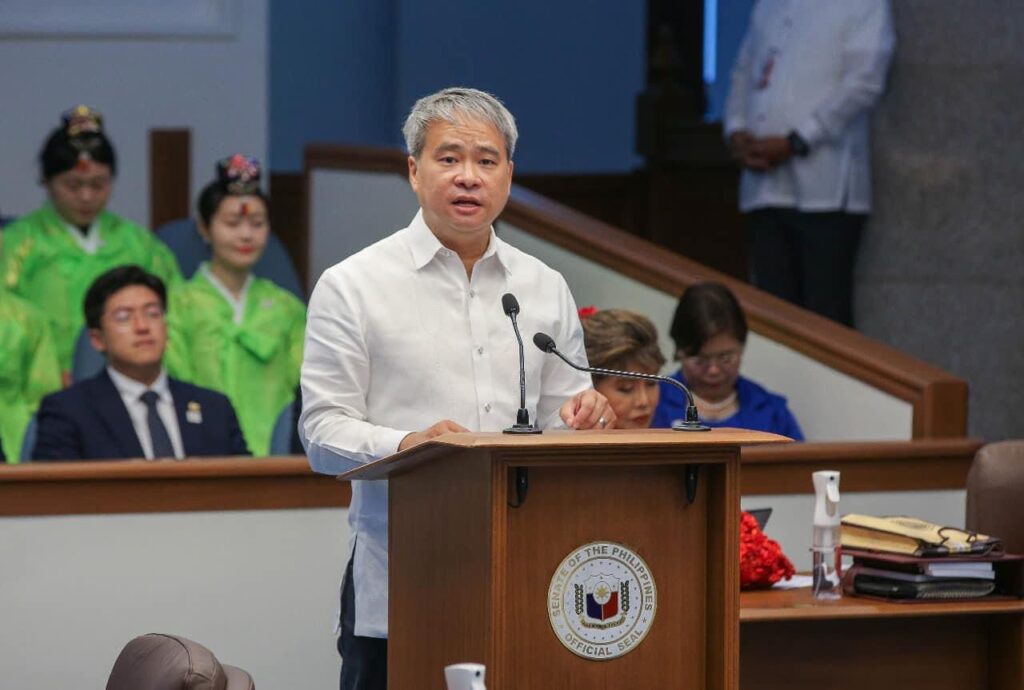Senate passes landmark EBET bill to bridge education-industry gap, boost employability of Filipino workers

Photo courtesy of Joel Villanueva Facebook page.
The Senate passed Senate Bill No. 2587, known as the Enterprise-Based Education and Training (EBET) Framework Act, on third reading on Aug. 12. This legislation aims to strengthen the connection between education and industry, providing new training opportunities for workers.
Senator Joel Villanueva, who chairs the Senate Committee on Labor, Employment, and Human Resources Development, champions the bill.
He expressed that Senate Bill 2587 “has the potential to make the lives of our people better, help our people move faster, and make our people’s burdens lighter.”
The bill has received support from the Marcos administration and the Legislative-Executive Development Advisory Council, highlighting its importance for workforce development.
The EBET Framework Act is an important legislation that seeks to improve the employability of the workforce by institutionalizing the enterprise-based education and training system in collaboration with the private sector. This will help address unemployment, underemployment, and skills mismatch in the country.
Research from the Second Congressional Commission on Education (EDCOM 2) and the Philippine Institute for Development Studies shows that graduates of EBET programs have higher employment rates.
“Data shows we’re only producing 3-4% EBET graduates over the past years, despite the employment rate in TVET outputs ranging from 87-92%,” Villanueva noted.
One key feature of the bill is a special tax incentive for companies that operate registered EBET programs.
These companies can deduct up to 75% of their training expenses from their taxable income, encouraging them to invest in employee training.
Additionally, the bill provides access to training scholarships for EBET trainees, easing financial burdens and promoting wider participation.
The bill also mandates industry boards to develop and recommend EBET programs for approval by the Technical Education and Skills Development Authority (TESDA) within 30 days of submission. This requirement ensures that programs remain relevant to industry needs.
Furthermore, the bill extends the maximum training duration from six months to three years, depending on the complexity of skills being taught.
EDCOM 2 Executive Director Karol Mark Yee emphasized the bill’s importance, saying, “With the rapidly evolving labor market, this bill ensures that EBET policies are more responsive to the unique needs and challenges faced by industry stakeholders as well as learners.”
The House of Representatives passed the bill’s counterpart, House Bill 7400, on March 21, 2023, marking a significant step toward improving education and employment in the Philippines.


